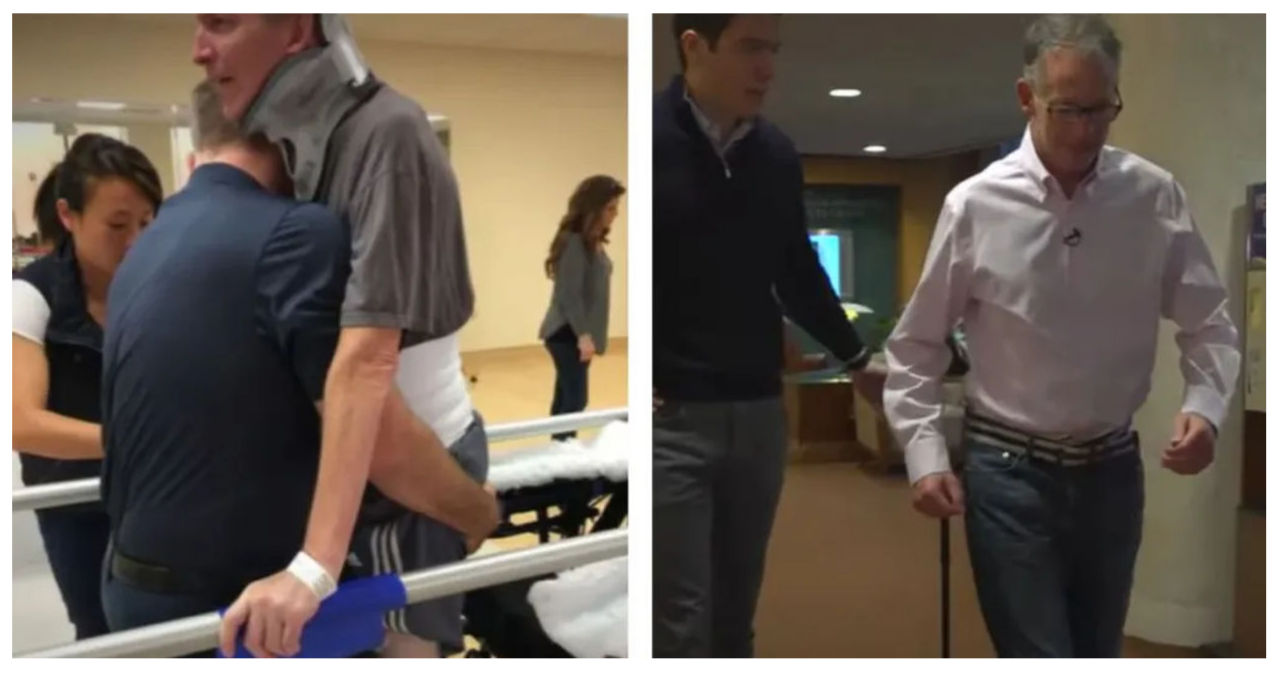Years ago, a man who was paralyzed in a surfing accident experienced a remarkable recovery through a groundbreaking stem cell treatment. Even more astonishingly, he claims that his mobility has continued to improve since then. Chris Barr was one of the fortunate individuals selected to participate in a pioneering study conducted by the Mayo Clinic, where only 10 people were given the opportunity to undergo this experimental treatment. Undoubtedly, the procedure yielded remarkable results for this particular patient.
According to Good Morning America, Chris expressed his astonishment at the remarkable recovery he had experienced. He mentioned that he never imagined such a positive outcome.
Chris was paralyzed from the neck down before receiving care, making it highly unlikely for him to ever walk again. However, the Mayo Clinic offered a new stem cell treatment that brought hope. Chris became the first person to try this treatment, and the results were nothing short of incredible.
Taking stem cells from the man’s body, multiplying them, and then inserting them into his spine was the treatment procedure. The outcome was nothing short of amazing! Chris, one of the seven patients in the study, reported that he regained sensation in his legs after the procedure. This method proved effective in restoring mobility for some patients.
The progress made in the research phase of this stem cell treatment has shown promising results. It has significantly transformed the life of one individual who was previously paralyzed, restoring his ability to walk.
Dr. Mohamad Bydon, a leading researcher in the Mayo Clinic study, expressed his excitement over the findings of the trial, stating, “The results clearly demonstrate the safety and potential benefits of using stem cells in the treatment of spinal cord injury. This breakthrough has the potential to revolutionize the fields of neurosurgery and neuroscience, offering new hope for patients suffering from spinal cord injuries.”
Just think about the countless individuals who could gain so much from this research!



